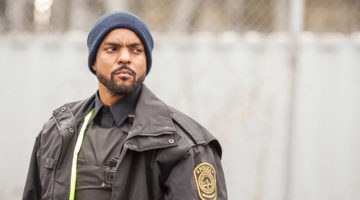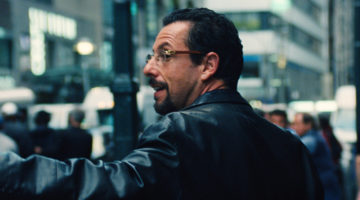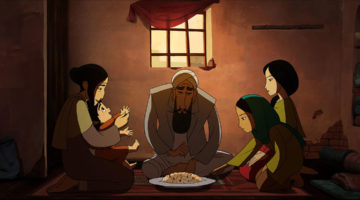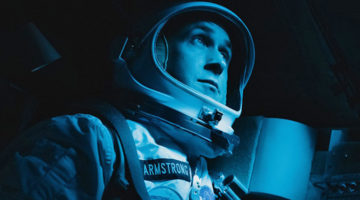Interview: Navid Negahban of Baba Joon
Yuval Delahad’s Baba Joon was a welcome presence in the Toronto International Film Festival. One reason in particular that the film is so welcome is the presence of actor Navid Negahban. Though Negahban may be unrecognizable to some, this is because he disappears into his roles. Some of the highlights on his resume include the classic character Abu Nazir on Homeland, two separate roles on 24 and an upcoming role in the film Damascus Cover, in which Negahban plays a Syrian, and he warns us to really look for this upcoming film, which also stars Jonathan Rhys-Meyers, Olivia Thirlby and John Hurt. In fact, Negahban is forthcoming with almost every question presented to him, except that he did want to give away too much about this film.
But Negahban does want to talk extensively about Baba Joon, which after its bow at TIFF, where it played to an extremely diverse crowd, and had many audience members approach the friendly actor and say “this is my life”, (the immigrant experience is clearly universal). The film is nominated for eight Ophir Awards (the Israeli Oscars) on September 21st, including for Best Film, Best Director, Best Photography and Best Supporting Actor. The film will also be playing in competition at the Haifa International Film Festival in late September.
The film is a story about a father and a son, Yitzhak and Moti (the father is played by Negahban, the son by Asher Avrahami), and is about Iranian-Israelis, the immigrant experience and a turkey farm, but is clearly about much more than these tropes. Particularly impressive is the performance by Negahban, and particularly how tender and then how harsh the actor can be. Though he is not Israeli, (the actor was born in Iran in 1968 and moved away in 1985 and has not come back for ten years), he nonetheless described the experience of going to Israel as “coming home and feeling like home”. Negahban filmed the show Homeland in Israel for season one, and said that he watched the original Israeli show Prisoners of War, (the shows share the same creator, Gideon Raff). He also mentions that when filming the show Homeland in Israel, that everyone was welcoming to the cast and crew, because they watched and respected the original show and treated them like brother.
Negahban passed along a key anecdote about the character of Abu Nazir. He said that he felt like the character was incomplete, (amazingly, he was given only a single paragraph with which to work) and that Negahban realized that he was missing a pair of glasses, but not just any pair of glasses. Thus, he went looking for the right pair, going to glasses shop after glasses shop to no avail. It was then that he found a pair that was hiding underneath, completely out of circulation, (an old-fashioned pair), and that Negahban tried them on, he knew that they were perfect and that the role of Abu Nazir was complete. He also mentioned a moment when Damian Lewis’ character of Nicholas Brody placed his head down on Negahbad’s shoulder and started to cry, that he knew that the role was finally coming together. Lastly, he mentioned that when Brody yells out “Issa” in bed with Carrie, that the mission of the show was finally coming true. He stated that he could not believe that he filmed his scenes for Homeland over five years ago.
Negahban mentions that he finally felt like he had made it as an actor when he starred in The Shield with Michael Chiklis. He mentions the kindness of Chiklis for helping to make it as an actor. For his role in Baba Joon, he learned how to be Jewish, how to be Israeli, by studying people. He studied not only how they talked, but also how they moved and how they walked. He stands and walks differently every time he plays a new character. Negahban has extensive experience with characters that are from different parts of the world from him, and yet infuses each role with a quiet humanity in order to capture that particular background, as he is not prone to caricature.
For Baba Joon, the movie is all about the journey, and particularly the journey home. He mentions that the actor playing his son in the movie, Avrahami, was an immigrant as well, leaving his homeland at the age of nine and not returning. Negahban reiterates that the film Baba Joon is about the immigrant experience and notes quite rightly that we are all immigrants. One aspect of the shoot that did not surprise is that working on a real-life turkey farm took its toll, (he really got in there). Negahban wasn’t really a fan of eating turkey before the shoot, but hasn’t had a single bite since and pretty much never wants to eat turkey again.
Lastly, and this is something that each viewer that has seen the film should look out for, take a close look at the pictures on the wall of Yitzhak’s house. For on the wall, Negahban inserted pictures of himself, of his father and of his late brother. Because he wanted to put something of himself into the film, as he could especially relate to the idea of being an immigrant.







